Louisiana Chapters Funding Specklebelly Study

Research looks into why wintering white-fronted geese have declined in Louisiana
Louisiana is a premier destination for hunting white-fronted geese, as it hosts one of the continent’s densest concentrations of wintering specklebellies.
But something is amiss. From 1996 to 2000, a massive 80 percent of the Mississippi Flyway’s white-fronted geese overwintered in the state, but since then, the birds documented in January surveys have steadily declined. Just 32 percent of the flyway’s specklebellies wintered in the Bayou State from 2011 to 2015.
The Louisiana Department of Wildlife and Fisheries wants to know why, and not surprisingly, so do waterfowlers.
“Specklebellies are certainly one of our iconic species,” said Paul Link, North American Waterfowl Management Plan coordinator for the Louisiana Department of Wildlife and Fisheries. “They have a cult-like following, and a lot of passionate hunters want to help us determine what types of habitats they’re using and where they’re going.”
Charged with studying those questions, Link discovered some breakthrough technology: Solar-powered neck collars that ping off cell-phone towers, potentially providing frequent, detailed data about traveling specks. But using them for a study wouldn’t be cheap: Each collar costs about $3,000.
“Then, a grassroots effort of private donors, and importantly local Delta Waterfowl chapters, got behind our research,” Link said. “It’s pretty unique for a state waterfowl study to be primarily donor-funded.”
The ball got rolling when Louisiana Wildlife and Fisheries commissioners Bart Yakupzack — who’s also a Delta donor — and Chad Courville brought the study to the attention of Delta chapter chairmen. Soon, the Gulf Coast, Vermilion and Eunice chapters contributed Waterfowl Heritage Funds generated at event banquets. The Baton Rouge Chapter later followed suit, and several Delta members made generous personal donations through The Duck Hunters Organization, including Beau Barbe, Brent Morvant and Pat Manuel.
The funds helped allow a crew led by Link to begin trapping and radio-tagging specklebellies in October 2015.
“The support from Delta chapters has been significant,” Link said. “Most have purchased a new transmitter every summer.”
Now in its third year, the study is monitoring the habitat usage and movements of more than 40 white-fronted geese. The initial findings have supported certain assumptions, including that Louisiana’s decreased rice farming correlates with the specklebelly declines, and that plenty of specks are “short stopping” in Arkansas and Missouri that previously wintered in Louisiana. Other data is more unexpected.
“Most surprising is the dramatic impact of the opening day of duck season on specklebelly movements,” Link said. “It causes a mass exodus, especially to Texas or Arkansas. For whatever reason though, the geese that endure opening weekend tend to stick around for much of the winter.”
Link’s study aims to further unlock Louisiana’s specklebelly mystery in the years ahead. The conclusions promise tangible benefits for white-fronted geese and goose hunters, made possible in part by local chapters of Delta Waterfowl.
“This is what Waterfowl Heritage Funds are all about,” said Bryan Leach, Delta’s senior regional director for Louisiana. “Our chapters saw a way to benefit their region’s waterfowl and waterfowl hunters, and took the initiative to make it happen.” —Kyle Wintersteen

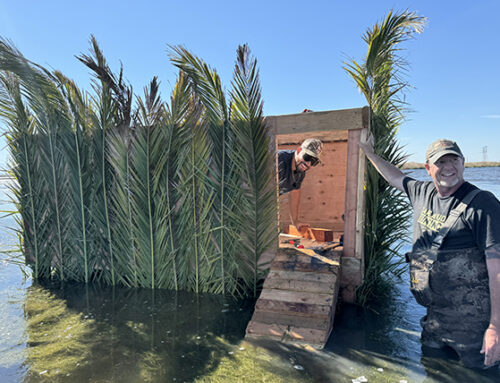
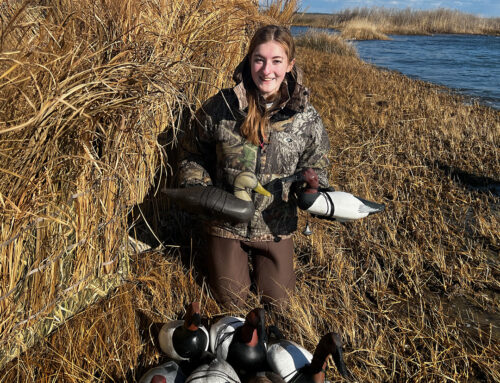
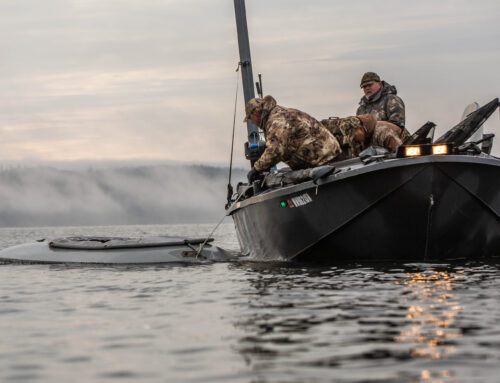
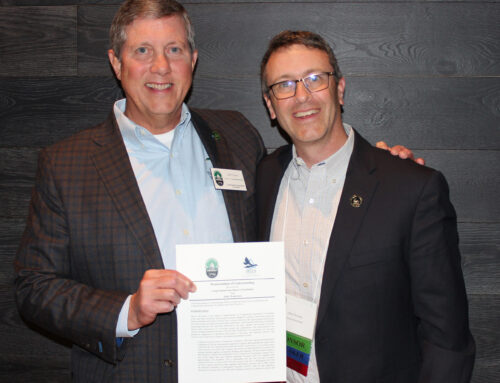
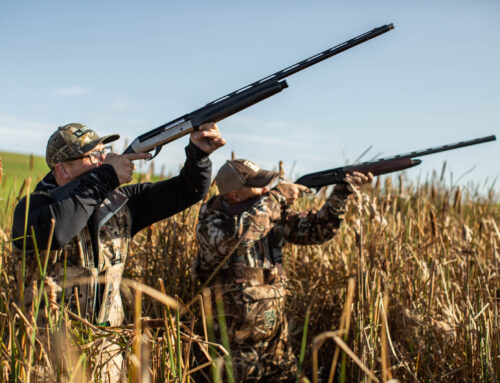
Good afternoon my name is Nathan Wright..
My wife and I live In east central Illinois in a town called Paris …. I moved to this location back in 2010 from southern Illinois for the reason of Canada goose hunting…. from the age of 16 i have been a waterfowl guide in Illinois … back in the mid 80’s all the way up to the early 2000’s we killed Canada geese in southern Illinois…. well that no longer takes place!!! I was Fortunate enough to meet a gentleman who brought me to Paris where the Canada geese still come….But only if Chicago and the northern areas get enough snow and freezing temperatures long enough to push them this far South ….. Recently in the last 4 to 5 years we have picked up more speckle belly than ever imagine ….its not only me who has noticed this, but other hunters through out the state of illinois